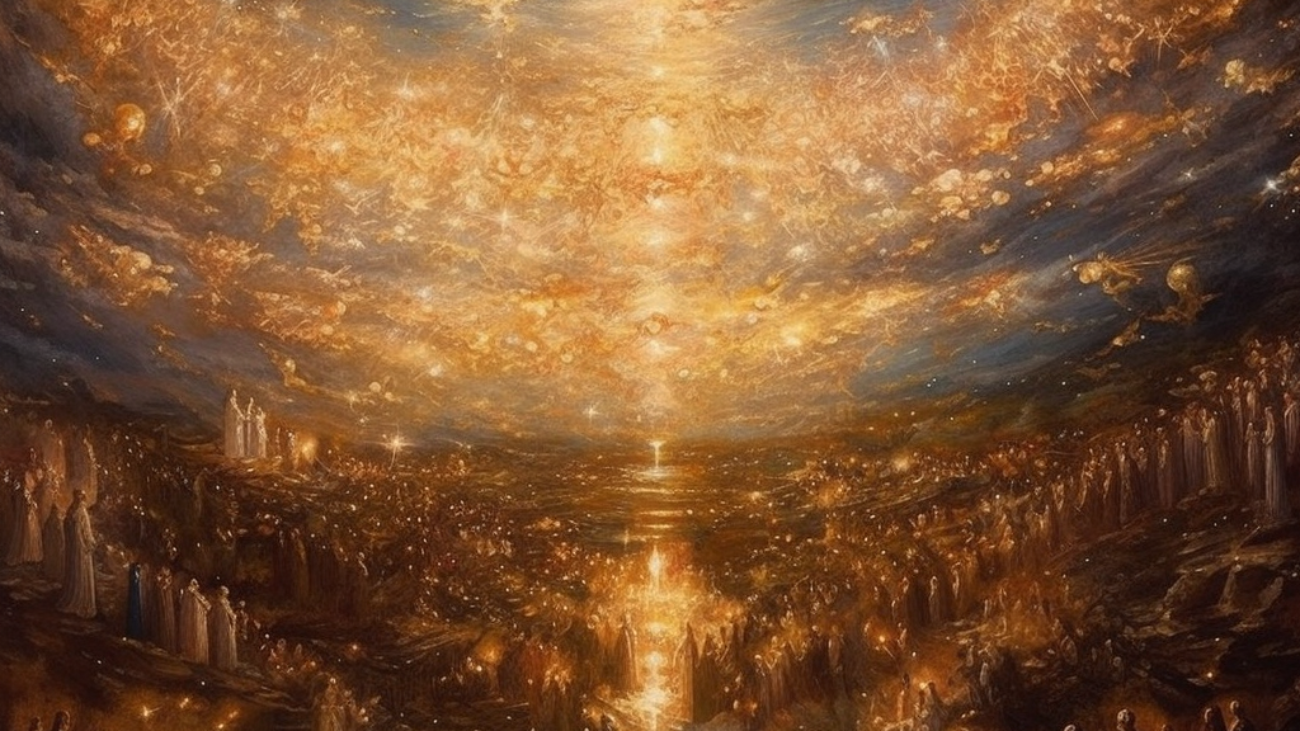I think Crowley was committed to the view that nothing exists except for gods. There are no tables, chairs, days of the week, physical interactions, brains, or peace treaties. The world is nothing but souls all the way down.
From a mythological point of view, these souls go on adventures that bring them into contact with star systems and planets and whatnot, where they choose bodies to incarnate in. But I think what Crowley actually surmised is that we are projections in space-time of conscious beings that are ultimately unlimited by physics (as we understand it).
Crowley is basically spicy Leibniz.
Crowley definitely did not believe these gods were all equivalent with one another. They had different qualities and motivations. Although he did posit that the underlying motivation of any of them to “incarnate” was the satisfaction of the drive to explore.
The greatest good is experience for its own sake.
Imagine nothing about you in space-time is real. Your life is an immersive VR experience, the purpose of which is to explore as many interesting scenarios in the game as exist. You wouldn’t play the game recklessly or timidly, as both would reduce the possibilities of play. You’d find the courageous mean. Similarly, you’d care about what happened to you and other characters but with the knowledge that all this is ultimately not that grave.
Can you see how the ethics of Thelema—the values in the Holy Books—follow from that intuition?
Thelema embraces the idea that people should be free to live however they want to live, but that doesn’t entail that all ways of living are equally good. There is a view of the good life in Thelema. It’s just not oriented toward a particular object. It’s oriented toward open-ended play.
This was the intuition I formed of Thelema when I first dug into Crowley’s writings about six years ago, and nothing has really shaken that view.
The nice thing about it is that it explains both the rational and irrational sides of Thelema. The rational side is how the realization of the nature of the universe implies a way of living. This is what I’ve called nomological and normative structure. The irrational side is the stuff about receiving messages from the Secret Chiefs and doing magick and whatnot.
On this view I’m suggesting, magick might be possible for those who have come to understand the rules governing the game on a secret or occult level. (See “Notes for an Astral Atlas” where Crowley more or less suggests this.) Secret Chiefs are the super-players who discovered these powers in other gaming sessions/incarnations. Or maybe they’re game developers. But they’re sending signals to other players in the game for some reason, teaching them how to advance through correct understanding of the nature of the game.
The part of this picture which I think is definitely true—which connects with our current psychological models—is that human beings do derive meaning in life from exploration. We derive meaning in particular from what might be termed “primary exploration” in order to differentiate it from the kind of exploration that pays the bills and puts a roof over your head and food on the table. Primary exploration is what we naturally feel drawn to explore the possibilities of—which I think connects naturally with the concept of true will.

